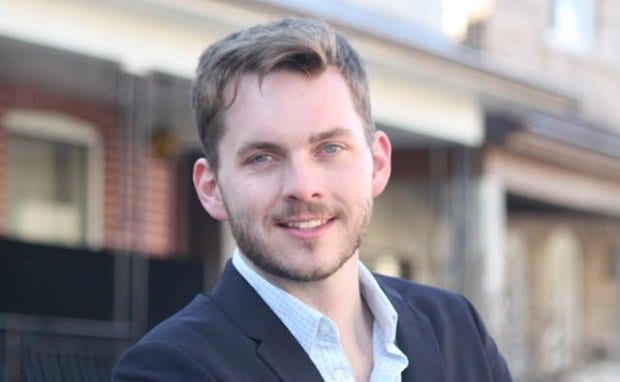It was not that long ago — just 20 years — that Janine Fuller and her friends piled into an old van and drove out of Vancouver, embarking on a multi-city road trip. They were raising money for a court challenge to oppose the seizure at the Canadian border of books and magazines destined for Little Sister’s Book and Art Emporium.
Little Sister’s held benefit readings and screenings from Toronto to San Francisco. In one delightfully irreverent fundraiser, Cleis Press released an anthology excerpting material that had been seized at the border. They called it Forbidden Passages.
A decade before that, Torontonians struck the Right to Privacy Committee, which helped defray the legal costs of gay men charged in the 1981 bathhouse raids. It also sent volunteer observers to court proceedings and lobbied governments to make sure that such police abuse never happened again.
It’s worth remembering that most of our victories haven’t been won because our political leaders have been gracious or taken our best interests to heart. No: by and large, they’ve been cowardly and risk adverse. Our victories have come through protest and sit-ins and letter-writing campaigns. And, sometimes, by suing the bastards.
The latest controversy was sparked by Trinity Western, an evangelical Christian university in Langley, BC. The school makes students sign an anti-gay pledge, and students can face discipline or expulsion for “same sex intimacy.” Trinity Western wants to launch a law school, and in December, it won important approvals from the BC government and from the Federation of Law Societies of Canada.
Some have said that the decision of the BC government will inevitably be challenged in court. I think that’s probably true, but it depends on what you mean by “inevitably.” In this case, “inevitably” doesn’t mean “with no work” or “without people pitching in.” It means, rather, that we can count on gay and trans communities to oppose the decision and to rally.
That’s why a group of people — myself included — are crowd-funding a legal challenge to the accreditation of Trinity Western Law. Prominent lawyers like Clayton Ruby and Angela Chaisson have expressed interest in the case. I suspect lawyers who care about this issue will put in a lot of free or deeply discounted time. But there are fixed costs that cannot be waived, including disbursements and filing fees.
Taking legal action is not my first preference. My first choice is for the BC government and the law societies to refuse accreditation, as they ought to. For more than a year, people who care about this issue — law students especially — have been protesting and writing letters to push decision-makers into doing the right thing.
Court challenges are not the best way to challenge bigotry. They’re protracted, expensive, messy things. Even if justice prevails, courts can’t undo past harms. Even victories can result in bad precedents, which haunt the law for years to come. They can sap the energy out of an otherwise vibrant movement.
And they can’t get at many of the wrongs faced by gay and trans people. No court case can cure the Catholic Church of its history of homophobia. No court case will make parents accept their transgender child.
Indeed, formal legal equality is a narrow thing. It can address only the most basic of wrongs. But Trinity Western Law’s sexuality-based admissions policy is just such a case. It is a basic and obvious wrong.
Crowd-funding this legal challenge is a slight twist on an old theme. Gays have been taking the government to court for years. But thanks to technology, Ruby, Chaisson and I — and our allies — won’t need to embark on a road trip to get the job done, as fun as that would be.
Donate to the legal challenge.
Marcus McCann is a law student at the University of Toronto and the former managing editor of Xtra.


 Why you can trust Xtra
Why you can trust Xtra


